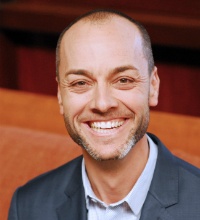 In a new post, 3 reasons why your observations may be a waste of time, on Education Week's Finding Common Ground blog, author and former educator Peter DeWitt tackles some of the same questions about observations that I asked myself almost constantly as both a teacher and school leader. Maybe you have, too.
In a new post, 3 reasons why your observations may be a waste of time, on Education Week's Finding Common Ground blog, author and former educator Peter DeWitt tackles some of the same questions about observations that I asked myself almost constantly as both a teacher and school leader. Maybe you have, too.
Does anyone really benefit from observations?
This question in particular sticks out to me, because if the answer is no, then what's the point? If school leaders just see them as more to get done, and teachers do not grow from the process, then observations really aren't worth the time.
But if observations are done the right way, with the right focus, everyone will benefit. As DeWitt points out, observations can help school leaders stay connected to the classroom and provide teachers with a really valuable outside perspective.
And most importantly, they can fuse a critical and authentic partnership between teachers and school leaders that ultimately benefits students.
That's why observations should be about growth, not "gotcha." Here are the 3 steps you can take now to stop wasting your time:
-
Focus on feedback: Teachers need actionable and specific feedback on their practices. In fact, research from the Measures of Effective Teaching Project has shown that teaching and learning will not improve if teachers are not provided with high-quality feedback from an equitable observation.
-
Be specific: When I say "high-quality feedback," I don't just mean that it needs to be thoughtful and detailed. Truly great feedback must be content-specific and relevant in order to spur growth. If you have a background in English, for example, can you really provide actionable feedback to chemistry teachers? Seek out qualified observers from within your school or district - or consider using outside observers with content-area specialties.
- Make connections: Observations should always inform professional learning to ensure that teachers receive targeted training and support on what they need the most.
I for one know that observations are challenging and take up a lot of a school leader's time, which is why they should be worth it.
Dr. Michael Moody is the Founder and CEO of Insight Education Group. His experiences as a classroom teacher, school and district administrator and consultant have given him a unique perspective on both the challenges and opportunities in education today. Contributing regularly to the blog, Michael is always excited to start or join a conversation about helping educators grow. He tweets at @DrMichaelMoody.



Leave a Comment